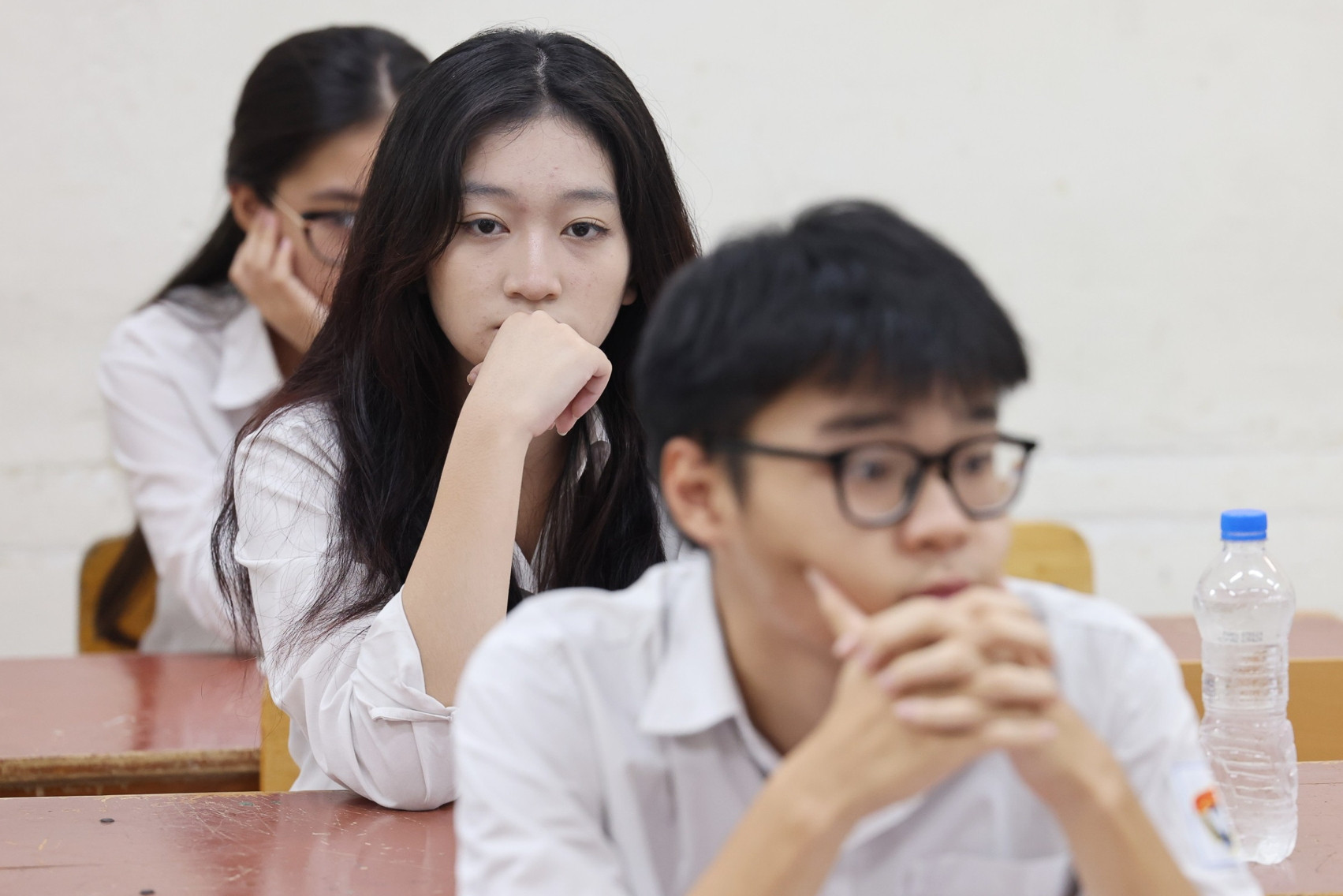

After one and a half months of implementing Circular 29, many parents have voiced concern about unintended consequences - particularly the rapid rise in the number of private tutoring centers and the steep increase in fees, which now exceed what they used to pay when tutoring occurred within schools.
Restricting mass tutoring: Reducing pressure, promoting self-study
Many readers have praised the positive intent of Circular 29, believing that the new regulations help students avoid excessive after-school classes and bring education back to its proper focus.
“Banning rampant private tutoring and encouraging self-learning is essential for the future of our children,” wrote reader Nguyen Thi Hang.
Reader Cao Thi Hien supported the move, noting that it allows students time to relax and enjoy their childhood: “We don’t want tutoring everywhere. Children need a proper childhood, and teachers need time for their families.”
Others expressed strong agreement with tighter control over private tutoring centers to prevent teachers from forcing students to attend for extra income, aiming to create a healthier educational environment.
Classroom limits, tutoring center boom: A growing burden on parents?
However, alongside support, many readers have pointed out flaws and new issues arising from Circular 29.
“Since Circular 29, tutoring centers have popped up everywhere, and fees have skyrocketed,” commented reader Dang Tri Dung.
There are growing concerns that some teachers are skirting the rules by teaching at centers or from their homes, complicating enforcement. “Banning tutoring at school just pushes teachers to centers, and in the end, parents still have to shoulder extra costs,” another reader noted.
As an example, one parent shared that while tutoring at school used to cost 20,000–30,000 VND per session, the same classes now cost 50,000–70,000 VND (approximately $2–$3) at private centers.
Parent Huong Nguyen observed a similar situation: “Before Circular 29, I paid 60,000 VND per session. Now it’s 70,000 VND, and nothing has changed - except I’m paying extra for the center’s overhead.”
Some parents said they can’t stop their children from attending extra classes, but the logistics have become more difficult. “Previously, my child finished school at 4:30 p.m., then played basketball or badminton before after-school lessons on campus. Now I have to skip work or hire a motorbike driver to take them to a cramped rental house in a narrow alley. It’s more expensive and far less safe,” one mother lamented.
Another parent, Tuyet Lan, shared: “If tutoring is banned, then centers should be banned too. My child gets left behind if others are going, and center fees are even higher.”
Echoing this sentiment, one reader remarked: “Letting centers operate just burdens students and parents more. It's still the same school teachers - only now teaching at a center for more money.”
Reader Tran Hanh worried that tutoring is now even more blatant: “Anyone can get a license to run a center, and now these operations are tax-backed.”
According to reader Le Trong Kim, following Circular 29, tutoring centers are mushrooming. “Even a small room of a few dozen square meters becomes a ‘center.’ Teachers swap students between classes. Fees have spiked due to extra rental costs. There’s little government oversight.”
Another reader, Minh Hien, described the outcome as “ridiculous”: “Classrooms sit empty while teachers and students crowd into centers day and night. Fees have nearly doubled. In the end, it’s the parents who suffer.”
What solutions can make Circular 29 truly effective?
To ensure Circular 29 has a genuinely positive impact, many readers suggest stricter enforcement and more practical solutions.
Reader Nguyen Anh Tuan proposed: “Completely ban outside tutoring. Instead, organize second-period lessons right at school under tight supervision. Pay teachers fairly so parents don’t have to scramble.”
Others focused on center regulation. Nguyen Thi Lan recommended: “The Ministry should inspect and shut down unqualified centers. Officials who approve illegal centers must be held accountable.”
Another reader suggested: “Inspect licenses for home and apartment tutoring. How are they getting these so easily? Private tutoring for elementary students should be strictly banned. Also, no tutoring after 8 p.m.”
Some readers advocated for the use of technology to reduce dependency on tutoring. Huy Nguyen wrote: “The Ministry of Education should promote self-study through the Internet and AI tools. If there aren't enough inspectors, launch a website for the public to report violations.”
Reader Trinh Vien added: “Unify the national curriculum, reduce theoretical overload, and increase hands-on learning. When the pressure eases, the demand for tutoring will drop.”
Through VietNamNet, reader Ngoc San Nguyen proposed creating a national exam question bank to ensure fair and objective assessments. “This would prevent unfair, confusing exams or favoritism. The Ministry should assign exam creation to academic offices, not teachers, to prevent collusion with tutoring centers.”
He also emphasized the need for strict penalties for those violating tutoring regulations, including warnings, demotions, suspensions, or even dismissal from the education sector.
Hoang Linh